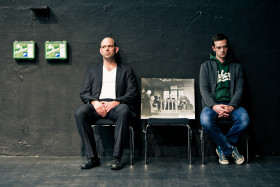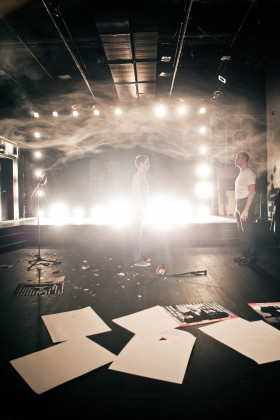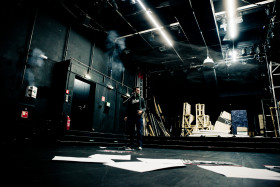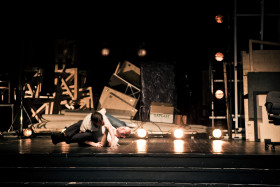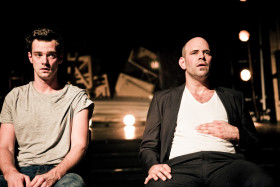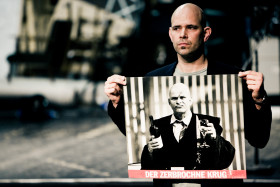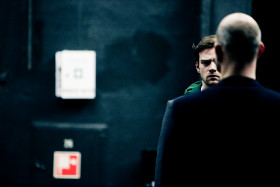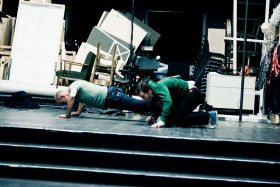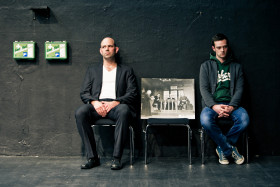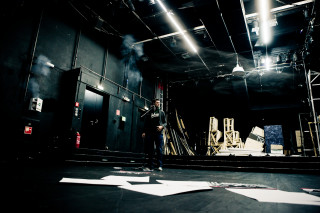
The broken jug
';- Theatre
- Schauspielhaus Graz
- 2010
Events
-
- 5 May 2011
-
- Theater Heidelberg, Heidelberger Stückemarkt
-
- 10 February 2011
-
- Schauspielhaus Graz
-
- 24 January 2011
-
- Schauspielhaus Graz
-
- 16 January 2011
-
- Schauspielhaus Graz
-
- 9 January 2011
-
- Schauspielhaus Graz
-
- 21 December 2010
-
- Schauspielhaus Graz
-
- 9 December 2010
-
- Schauspielhaus Graz
-
- 27 November 2010
-
- Schauspielhaus Graz
- World Premiere
Heinrich von Kleist suffered more than almost anyone else from the burden of linguistic subjectivity. Crises of reality and identity dominate his work. Kleist repeatedly uses the ambiguity of language to highlight the problem of its unreliability. In doing so, he radically questions the means of his artistic representation as well as the concept of truth.
This abyss of the real is the starting point for Nikitin's fourth full-length theatre production and play development. Nikitin is not only following on from his previous works on a thematic level. Because he expects to encounter institutional difficulties during rehearsals, he uses both Kleist's tragicomedy and his own play "Imitation of Life" as a model for his first city theatre work. Some scenes - the actor who talks about how he creates emotions and then actually begins to cry, or the flickering fluorescent tubes that transform into a spectacle of light to Charles Ive's "Unanswered Question" - are adapted almost one-to-one. Nikitin is thus continuing a practice of sampling that he began with his previous productions.
"The Broken Jug" is a remake of "Imitation of Life" and at the same time an essay on the question of the recognisability and representability of the world. It is a play about repetition. After "Woyzeck", "Der zerbrochne Krug" is Nikitin's second work that takes a classic from the theatre canon as a model for his own authorial work. However, he was unable to push through the idea of using the title of the original play, as he had done with "Woyzeck", with the theatre management. The play runs in the theatre under the title "Der Fall Dorfrichter Adam" ("The case of village judge Adam").
As in the previous plays, Nikitin develops the text material together with the actors - a practice that will only gradually change from 2013, when Nikitin begins to write more himself.
- Conceived, directed and designed by
- Boris Nikitin
- Stage design & concept
- Matthias Meppelink
- Performers & texts
- Michael Jackenkroll, Gustav Königs
- Dramaturgy
- Regula Schröter
- Assistant director
- Manuel Czerny
Produced by
Schauspielhaus Graz
Premiere
27 Nov 2010
